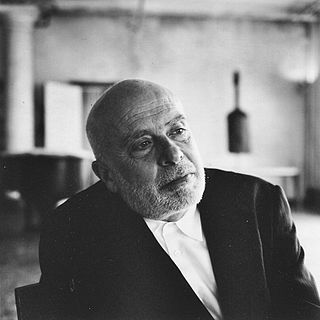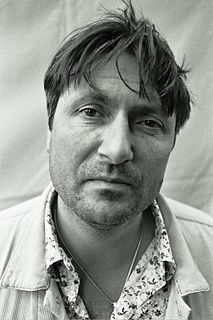A Quote by Billy Collins
I find it strange that - at least in my take on it - the people who are the most alarmed about the dire times we live in are the ones who seem to be humorless, in their taste for poetry anyway. Humor is just an ingredient. It's always been in poetry. It kind of dropped out of poetry I think during the 19th and up to the mid-twentieth century. But it's found its way back. And it's simply an ingredient.
Related Quotes
Poetry has an indirect way of hinting at things. Poetry is feminine. Prose is masculine. Prose, the very structure of it, is logical; poetry is basically illogical. Prose has to be clear-cut; poetry has to be vague - that's its beauty, its quality. Prose simply says what it says; poetry says many things. Prose is needed in the day-to-day world, in the marketplace. But whenever something of the heart has to be said, prose is always found inadequate - one has to fall back to poetry.
When I devoted myself to poetry - and poetry is a very serious medium - I don't think the people that knew me as an individual with that tongue-in-cheek kind of humor...well, it didn't always lend itself to my poetry. When you're writing poetry, it's like working with gold, you can't waste anything. You have to be very economical with each word you're going to select. But when you're writing fiction, you can just go on and on; you can be more playful. My editor's main task is to cut back, not ask for more.
I think poetry always lives its life, and people come to it and people go away from it, 'people' in the sense of larger numbers of people. It's as though you begin to think that poetry is a resource, and that at certain times people seem to need it or want it or can find sustenance in it, and at other times they can't.
I have the idea that lyric poetry is a poetry that's driven by a sense of the presence of death. That there's something unbearable about the fact that we're going to die and that we can't stand it and I think you find that out in childhood and you don't really - at least I found it out in childhood and I found it hard to get over.
There's a sameness about American poetry that I don't
think represents the whole people. It represents a poetry
of the moment, a poetry of evasion, and I have problems
with this. I believe poetry has always been political, long
before poets had to deal with the page and white
space . . . it's natural.
For a lot of people, well-meaning teaching has made poetry seem arcane, difficult, a kind of brown-knotting medicine that might be good for you but doesn't taste so good. So I tried to make a collection of poetry that would be fun. And that would bring out poetry as an art, rather than the challenge to say smart things.
To be honest, I wasn't crazy about the kind of poetry I found in high school English books. I didn't get really excited about poetry until I discovered Lorca in college. If it wasn't for surrealism, I'm not sure I'd have become so involved in poetry. I was attracted by the extravagant imagery and elements of fantasy. This was in the '70s and it seemed to fit the psychedelic mood of the times. I found it liberating.
Poetry is the most informative of all of the arts because everything comes down to poetry. No matter what it is we are describing, ultimately we use either a metaphor; or we say "that's poetry in motion." You drink a glass of wine and say, "that's poetry in a bottle." Everything is poetry, so I think we come down to emotional information. And that's what poetry conveys.
I'm not against sentimentality. I think you need it. I mean, I don't think you get a true picture of people without it in writing... It's a kind of poetry, it's an emotional poetry, and, to bring it back to the literary scene, I don't think anything is true that doesn't have it, that doesn't have poetry in it.
I have no idea, actually, where I fit in, in terms of poetry camps. At AWP conferences, I have been on panels about humor, collaboration, visual poetry, confessional poetry, gender, and the body, as well as tributes to Edward Field and Albert Goldbarth. I felt at home on all of them - most poets straddle more than one school.





































